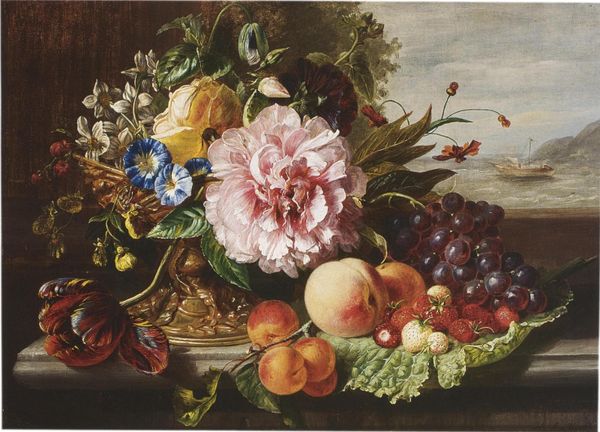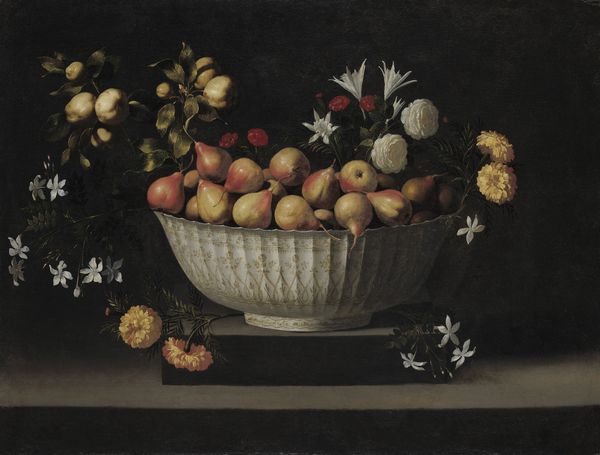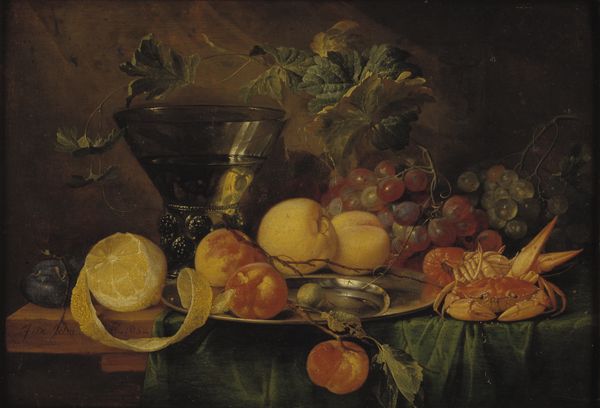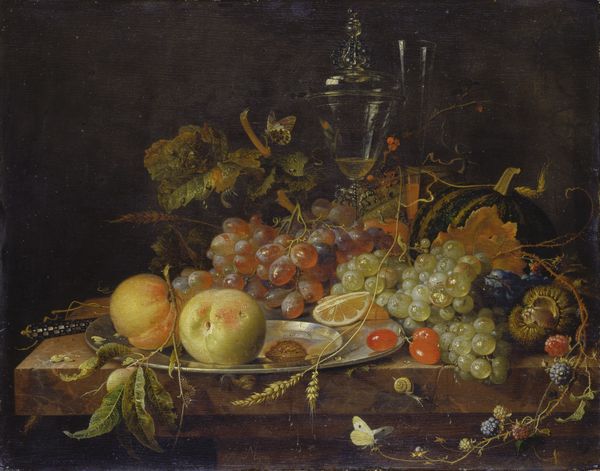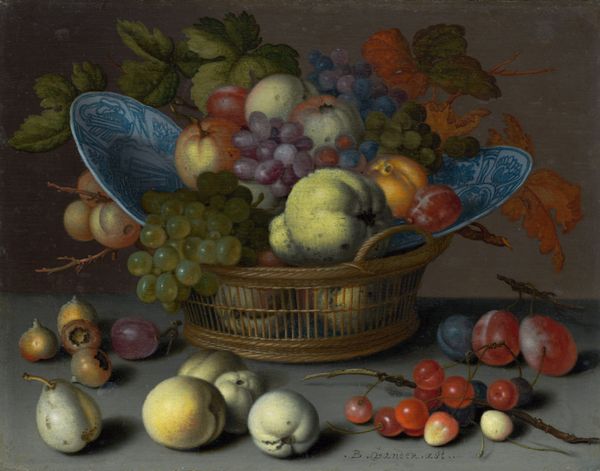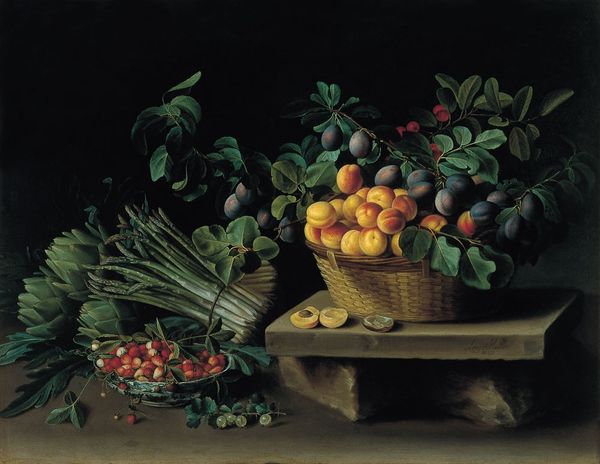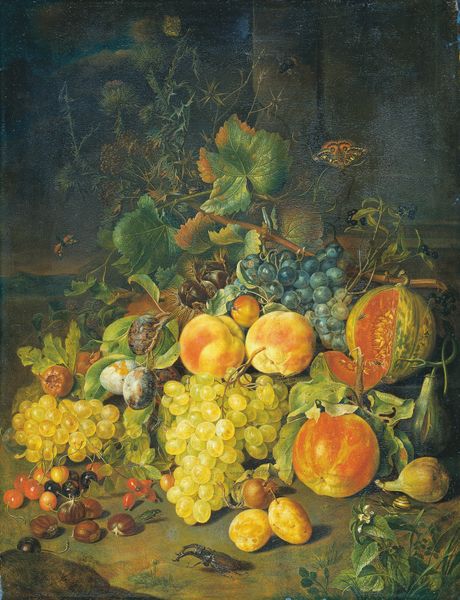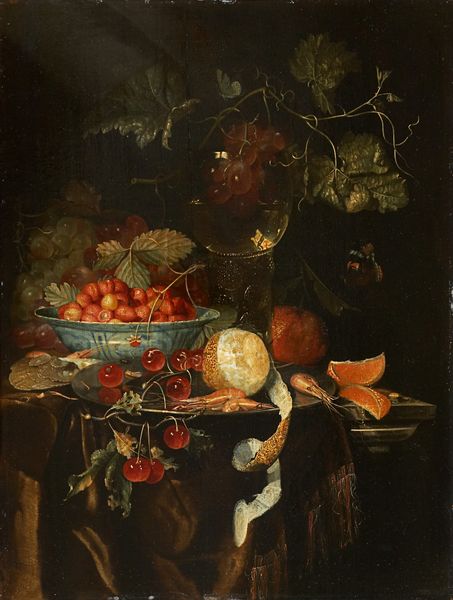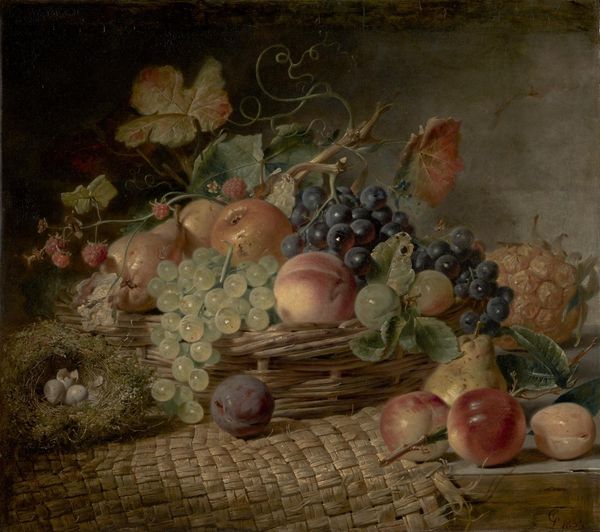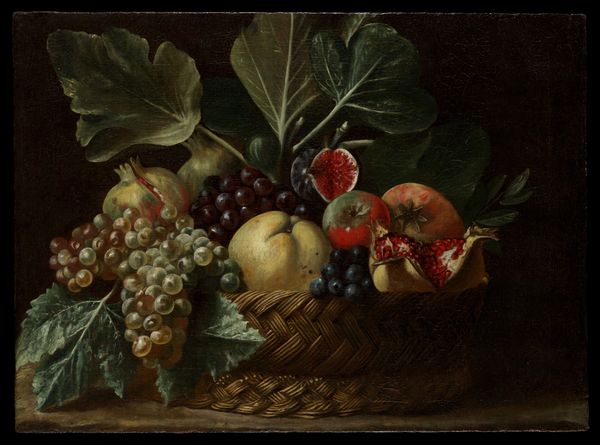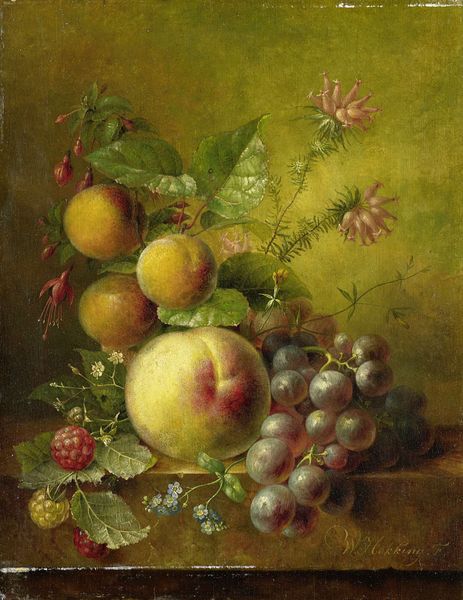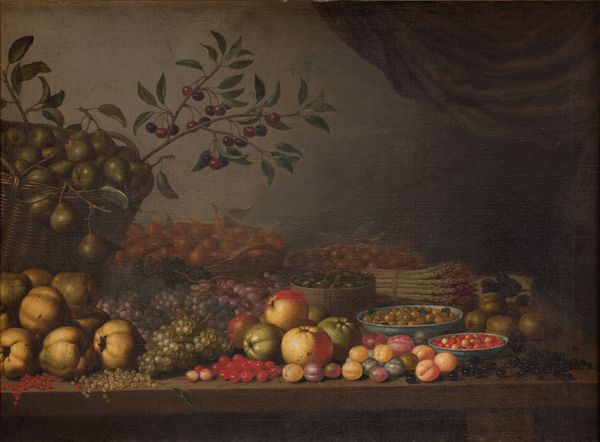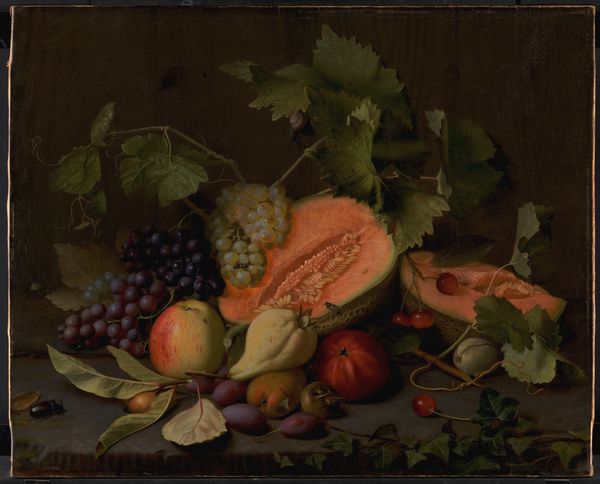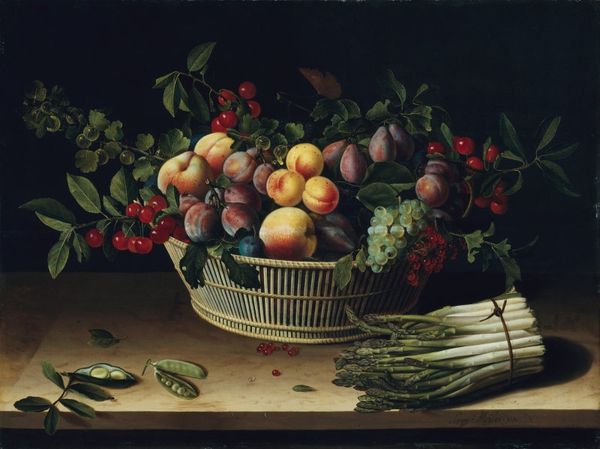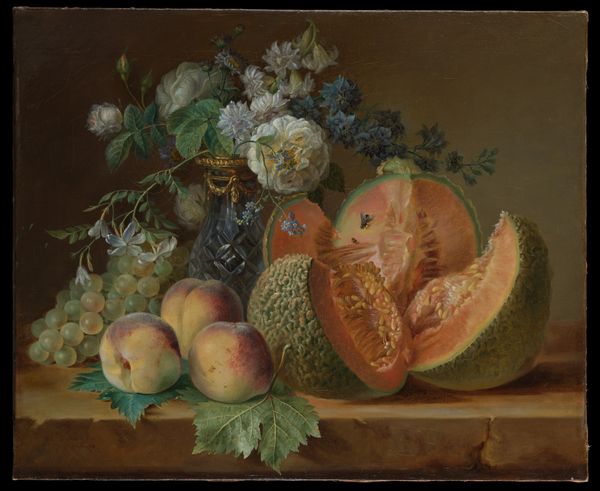
painting, oil-paint, impasto
#
table
#
food
#
painting
#
oil-paint
#
landscape
#
oil painting
#
impasto
#
fruit
#
plant
#
realism
Dimensions: 59 x 72 cm
Copyright: Public domain
Editor: We're looking at Gustave Courbet’s "Still Life Fruit," painted in 1872. It’s a collection of fruit, seemingly apples and pears, overflowing from a woven basket. There's almost a melancholy feel to it. What symbols or deeper meanings do you see at play here? Curator: That "melancholy" is interesting. Do you notice how the fruit appears almost overripe, some decaying? In still life, fruit often represents mortality, the fleeting nature of beauty and earthly pleasures. And given Courbet painted this while imprisoned for his role in the Paris Commune, might the wilting fruit reflect a personal disillusionment or the fading promise of the Commune's ideals? Editor: So the symbolism connects to his life circumstances... The context changes the whole mood. Curator: Precisely. The painting moves beyond mere representation. Consider also the impasto technique, the thick application of paint. It's almost aggressive. Doesn't this suggest more than just the simple depiction of fruit? Editor: Definitely, the heavy texture communicates intensity and emotion, unlike typical still-life painting. Do you think Courbet chose this style specifically to convey those feelings? Curator: Yes, Realism, his hallmark style, becomes almost expressionistic here. The fruit becomes a vessel for communicating ideas about loss and the weight of history. How do these details, especially Courbet’s biography, resonate with you? Editor: Now that you’ve mentioned the biographical context and symbolism, the artwork feels deeper and has changed my perspective. The visual language carries weight beyond the surface. Curator: I’m so glad. Seeing beyond the immediately visible into the layers of cultural memory is vital to engaging with the image in new and interesting ways.
Comments
No comments
Be the first to comment and join the conversation on the ultimate creative platform.
